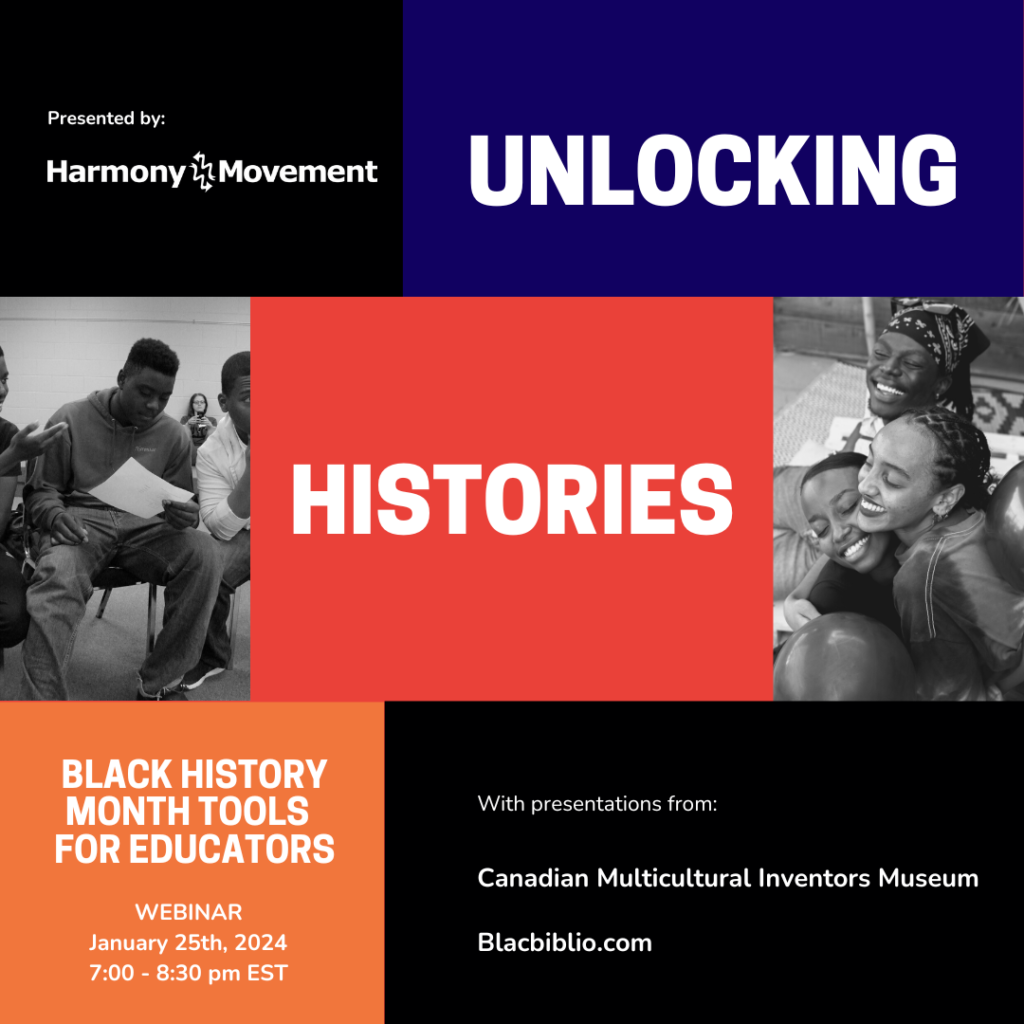Black History Month is a time to honour and celebrate the achievements, contributions, and resilience of the Black community. To deepen our understanding of this significant month, educators should strive to provide meaningful learning opportunities to students, but also reflect on shifting practices to engage with Black history throughout the school year.
Read our blog below and join us on Jan 25th for our free educator webinar “Unlocking Histories” from 7:00pm to 8:30pm with presentations from blacbiblio and the Canadian Mulitcultural Inventors Museum to reflect on ways to integrate more learning opportunities into your school in February and all year round.
The James Banks’ Continuum can enhance our approach to commemorating Black History Month, moving beyond a mere acknowledgment to a transformative and inclusive educational experience.
James Banks, a distinguished educator and scholar, developed the Continuum to guide educators in incorporating multicultural perspectives into the curriculum. The Continuum consists of four stages. Each stage represents a different level of integration of diverse perspectives into the educational experience.
- Contribution Stage: At this stage, the focus is on recognizing and celebrating the individual contributions of Black individuals. During Black History Month, this might involve highlighting prominent figures such as Martin Luther King Jr., Viola Desmond, and Jean Augustine. While valuable, this stage often involves presenting isolated facts without connecting them to broader historical and social contexts.
- Additive Stage: Moving beyond simple recognition, the additive stage involves incorporating diverse perspectives into the existing curriculum. In the context of Black History Month, this could mean expanding beyond well-known figures to explore a wider range of voices and experiences. Including literature, art, and historical events from a diverse array of Black perspectives enriches the educational experience.
- Transformative Stage: This stage requires a deeper examination of the structures and systems that have shaped Black history. This involves critically analyzing historical events, societal norms, and cultural practices. During Black History Month, educators can delve into topics such as the Civil Rights Movement, the Harlem Renaissance, and the impact of systemic racism. This stage encourages students to question and challenge prevailing narratives.
- Social Action Stage: The ultimate goal of the Continuum is the social action stage, where education extends beyond the classroom to inspire students to actively engage in creating a more just and equitable society. Black History Month becomes a catalyst for discussions on contemporary issues such as racial inequality, systemic racism, and social justice. Students are encouraged to take meaningful actions that contribute to positive change.
“The four approaches to the integration of ethnic content into the curriculum that I have described are often mixed and blended in actual teaching situations. One approach, such as the Contributions Approach, can also be used as a vehicle to move to other and more intellectually challenging approaches…Rather, the move from the first to the higher levels of ethnic content integration into the curriculum is likely to be gradual and cumulative.”
Key Questions for Reflection:
- Thinking about you or your school’s plans for Black History Month, on what level of the continuum do they land?
- How can you shift or add in practices to help deepen the learning to more challenging approaches?
- What further learning or tools do you need to help move from one approach to the next level?
By incorporating diverse perspectives and encouraging critical analysis, we can turn Black History Month into an opportunity for meaningful reflection, dialogue, and positive social action.
To delve deeper into these concepts and gain practical tools for incorporating them into your educational practices, consider joining our upcoming webinar “Unlocking Histories: Black History Month Tools for Educators” taking place on Jan 25th from 7:00 – 8:30pm, which aims to provide educators with valuable insights and resources.
Moreover, for a comprehensive exploration of anti-racism strategies in education, we invite you to participate in our upcoming Educators Anti-Racism Conference in Toronto on February 21st. This conference is designed to empower educators with the knowledge and skills needed to foster inclusive classrooms.


